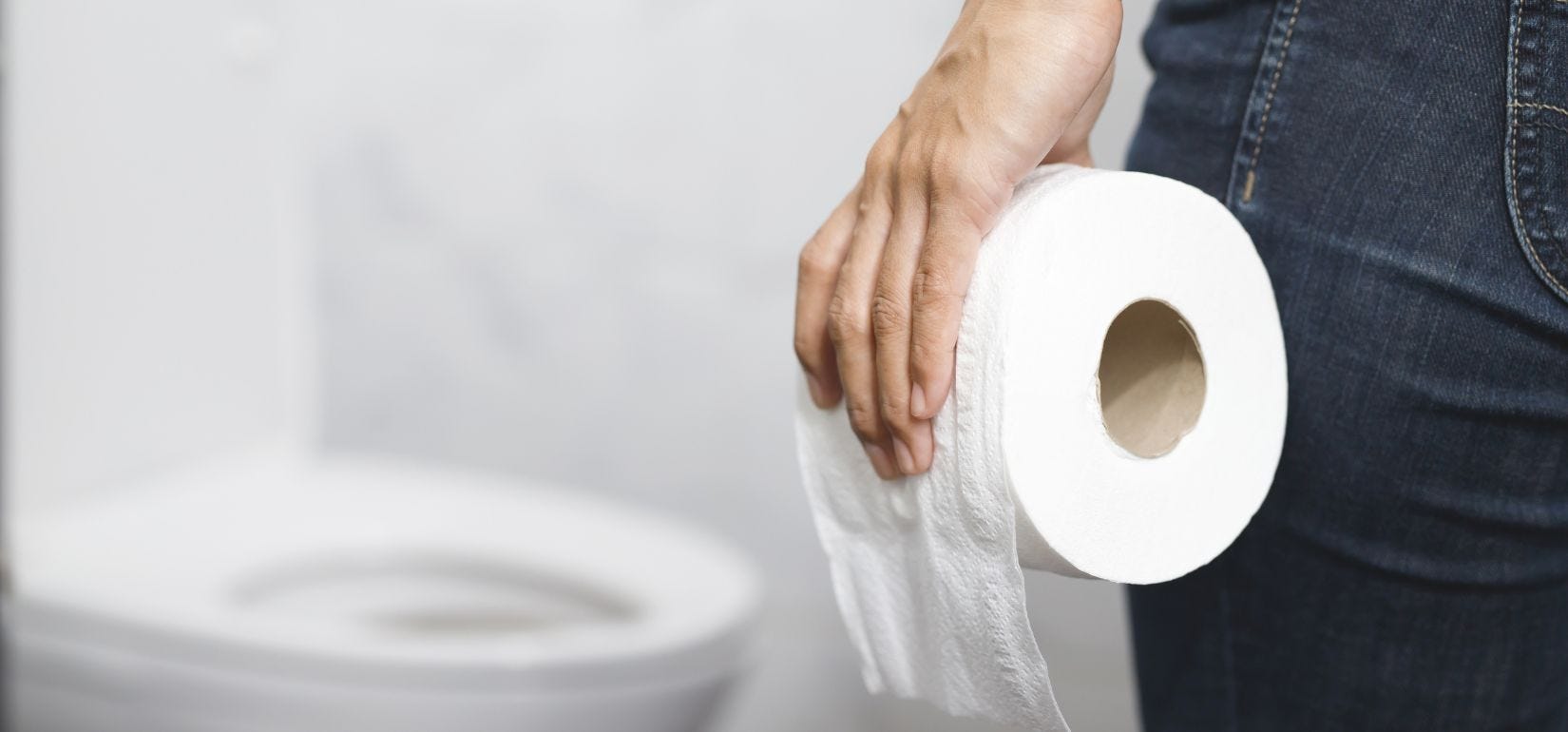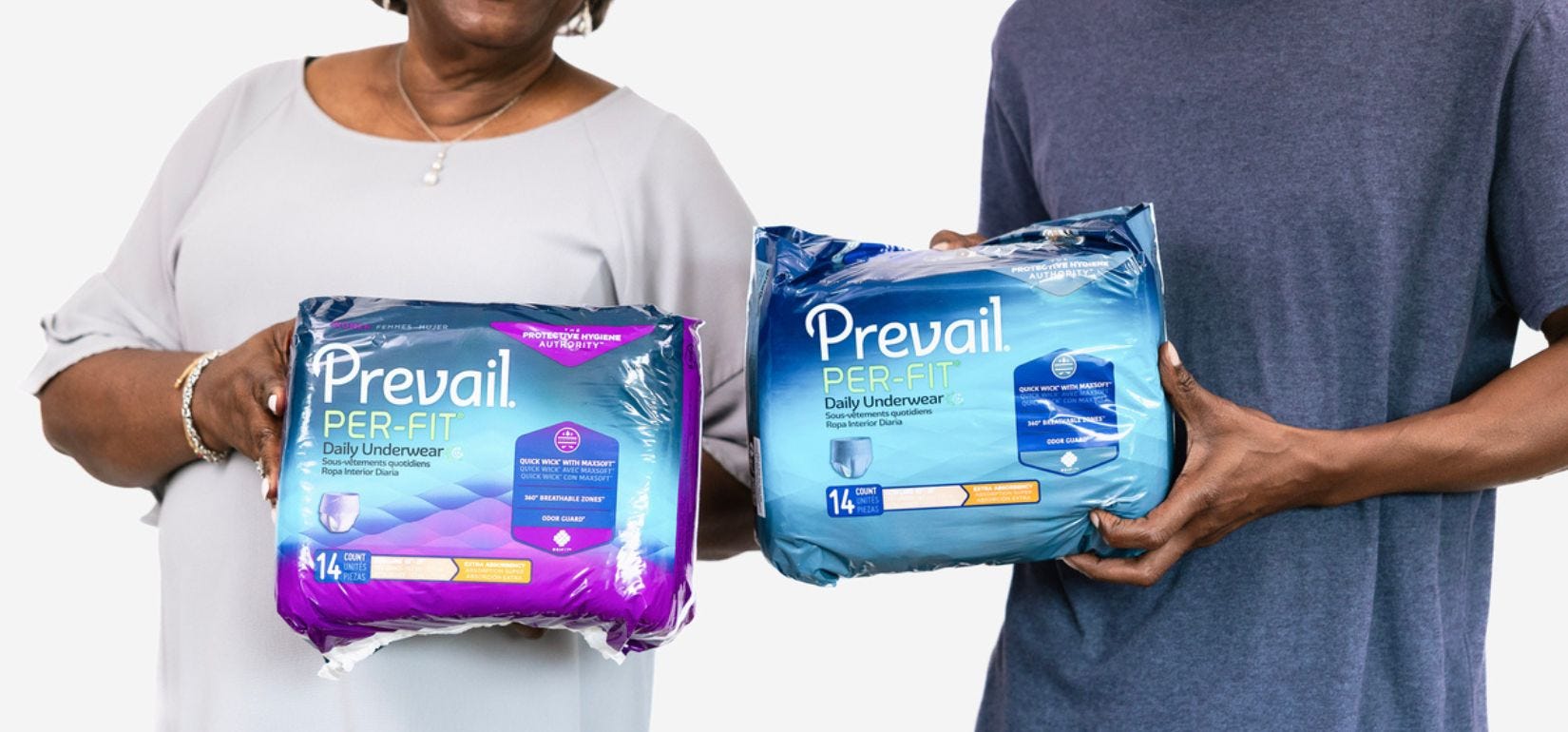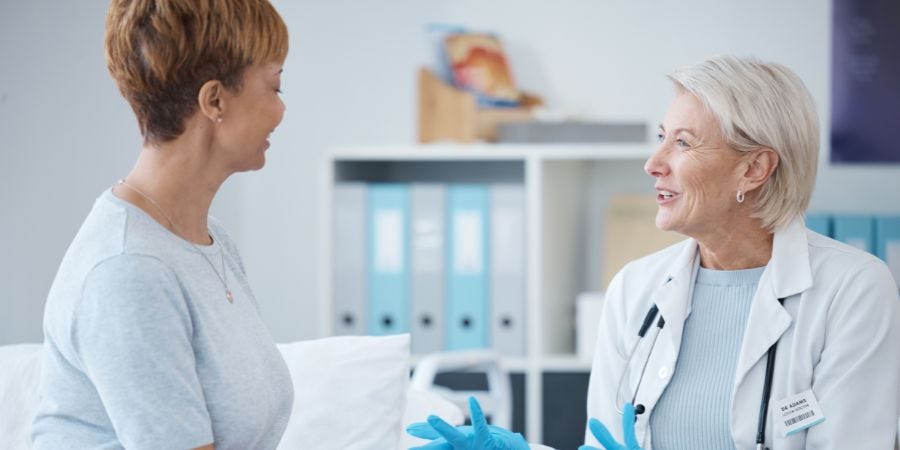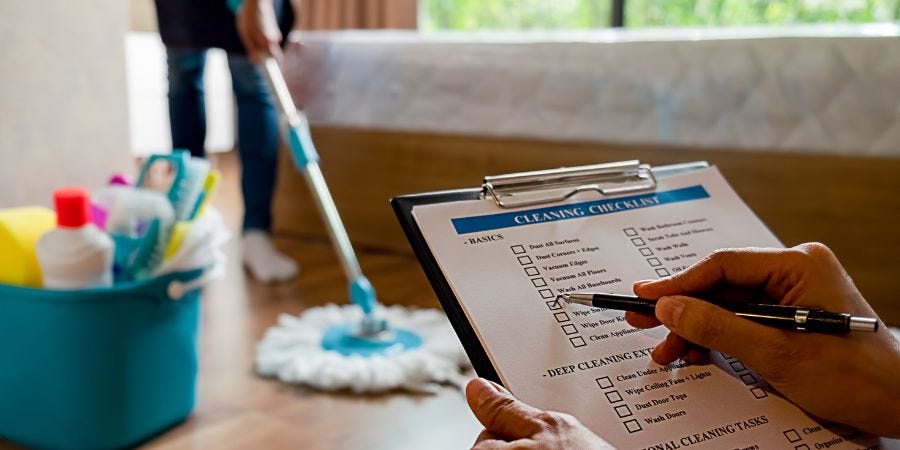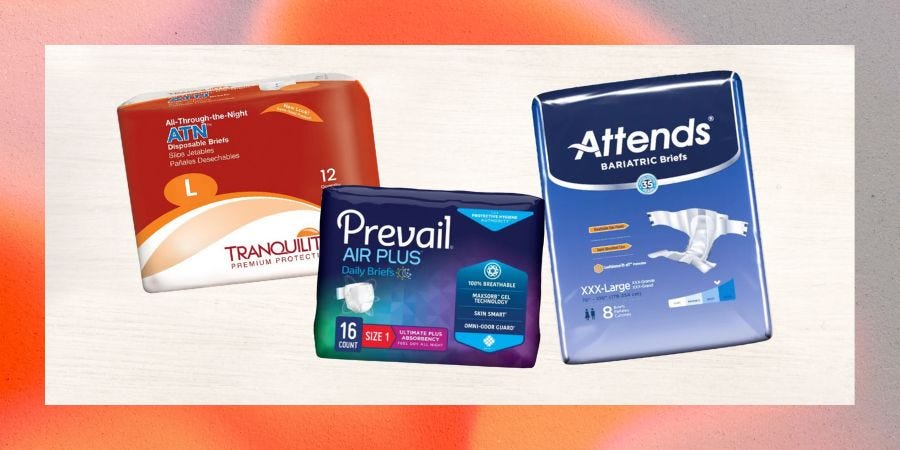Edited by Marlee Septak, Copywriter at Aeroflow Urology.
Our digestive system plays a vital role in maintaining our overall well-being. But what happens when this process doesn't work properly, causing constipation? For many, it's an uncomfortable experience that can have unwanted side effects, even triggering unexpected consequences such as bladder leaks.
Learn how these two conditions are connected and get 7 practical and effective tips to relieve constipation and regain control over your digestive health.
Can Constipation Cause Urinary Incontinence?
Constipation can cause you to experience symptoms of urinary incontinence (UI), specifically overactive bladder (OAB) or urge incontinence, urinary retention, and overflow incontinence.
OAB / Urge Incontinence: When you're constipated, your rectum becomes full of stool, which adds extra pressure to your pelvis, limiting the amount your bladder can hold. This can cause you to experience increased urges to urinate, leading to more frequent trips to the restroom. Constipation also creates added pressure directly to the bladder (the rectum sits behind the bladder), causing urine leakage.
Check Your Eligibility
2 Easy Steps
From catheters to pediatric and adult incontinence supplies, discover the continence care essentials covered by your insurance.
Overflow Incontinence & Urinary Retention: The increased pressure and strain on the pelvic floor muscles from constipation can decrease nerve sensation and eventually lead to less feeling of the need to defecate, worsening constipation and incontinence. The same nerves that surround the rectum and give signals to your brain that you need to defecate also innervate the bladder. If there is damage to the nerves secondary to constipation, this can lead to decreased sensation of the need to void urine, leading to overflow incontinence and / or urinary retention.
Constipation can also exacerbate symptoms in those who are already experiencing UI; if there is already added pressure in your pelvis from your bowels, something that creates pressure from the diaphragm, like a sneeze, can make stress incontinence worse.
What Are the Causes of Constipation?
- Dehydration
- Pelvic floor outlet obstruction (secondary to high-tone pelvic floor muscles).
- Sedentary lifestyle.
- Lack of fiber in diet.
- Certain medications.
- Pregnancy (secondary to elevated progesterone levels).
- Disordered eating.


- Functional constipation when holding bowels (secondary to not having access to a restroom when the urge to defecate occurs).
What Are the Symptoms of Constipation?
- Infrequent bowel movements. You should be having at least 1 bowel movement daily. If it has been longer than 3 days since your last bowel movement, it can exacerbate constipation and UI.
- Abdominal bloating.
- Abdominal distention.
- Abdominal pain / discomfort.
- Increased flatulence.
- Decreased appetite.
- Nausea / vomiting (in severe cases).
- Pain during bowel movement (secondary to hard stools and passing small pellet-like stool).


How Do You Treat Constipation?
If you have UI, leaving constipation unaddressed can be damaging and lead to pelvic floor dysfunction, which can worsen constipation and UI, so be sure to treat your constipation.
- Hydrate. Increase your water intake to help move your bowels. Drink at least 80oz of water each day.
- Go when you need to. Do not hold your bowel movements; this will train your bowels not to move when they need to, and eventually, you won't know when the need to defecate is there.
- Eat more fiber. Fiber intake is essential to preventing constipation! You need at least 20-25g of fiber each day. It's best to reach your daily fiber intake by eating fiber-rich foods (raspberries have the highest fiber intake of all fruits at 11g in 6oz!). However, a dietary fiber supplement can be helpful as well.
- Feed your gut. Probiotics aid in optimizing bowel function. Taking probiotics daily can help prevent constipation. Try fermented foods, kefir, greek yogurt, or a probiotic supplement.
- Get moving. Research has shown that physical movement significantly improves bowel motility and relieves constipation. Walk at least 15 minutes twice daily to avoid constipation.
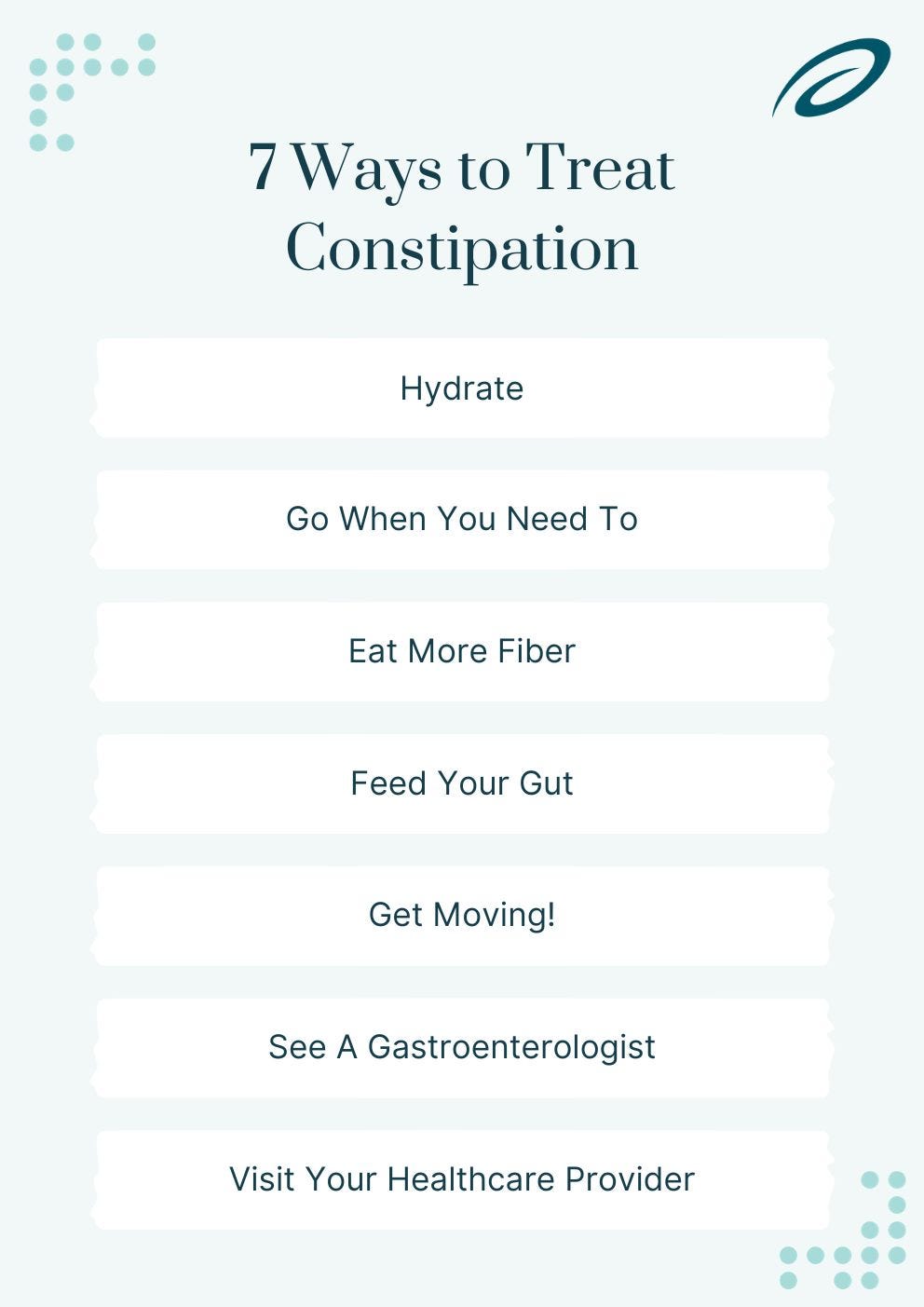

6. See a gastroenterologist. Gastroenterologists can help determine if a prescription medication is essential to aid in bowel motility
7. Speak with your general healthcare provider. Constipation can cause confusion in older adults and even cause fever in children. Ask your provider for tips to defecate better and see if any imaging / tests are specific to your needs. Remember that the colon cancer recommendation is now age 45! Ask for a colonoscopy today!
What Is the Best Way to Void Your Bowels?
Practice these tips when relieving your bowels to avoid constipation.
- Attempt to defecate at the same time every day to practice good bowel habits.
- Use a stool, like a squatty potty, to place your feet on. This will help elevate your legs and open up the pelvic floor muscles to aid in outlet obstruction.
- Do not strain! Straining to poop can cause vasovagal syncope and cause you to pass out on the toilet. It can also damage your pelvic floor muscles.
- Breathe regularly and push out your abdominal muscles to decrease the pressure and allow your bowels more motility.
There's a lot of new research showing that paying attention to your gut is important for your overall health. Optimizing digestion with regular bowel movements and avoiding constipation can improve memory, cardiovascular health, and pelvic function, especially around bladder health. By taking control of constipation and focusing on daily bowel movements, you can improve your social life, overall health, and quality of life.
Disclaimer
Information provided on the Aeroflow Urology website is not intended as a substitute to medical advice or care from a healthcare professional. Aeroflow recommends consulting your healthcare provider if you are experiencing medical issues relating to incontinence.


